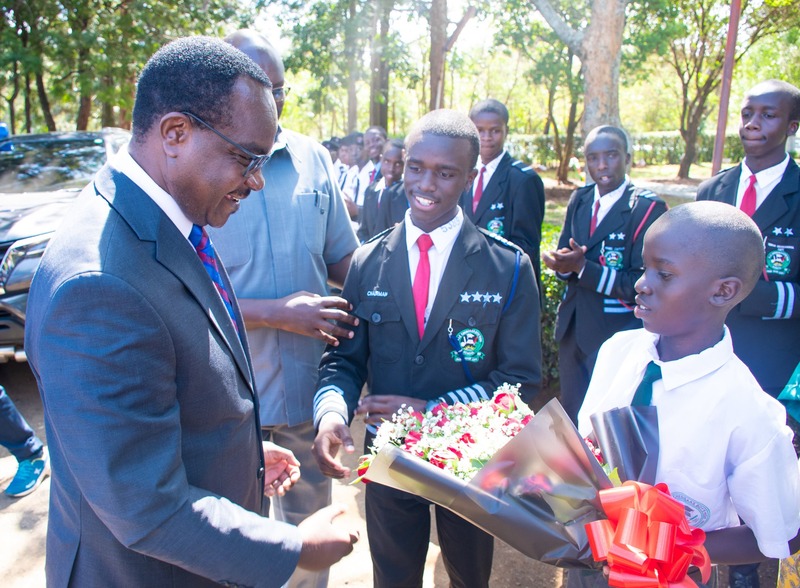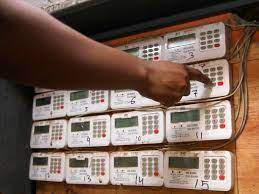Government to open HELB portal for first and second-year students to appeal for financial aid amid court battle

Ogamba reiterated that the government would continue implementing the funding model until the Court of Appeal delivers its final ruling on the case.
The government is set to open the Higher Education Loans Board (HELB) portal for first and second-year university students to appeal for financial aid, Education Cabinet Secretary Julius Ogamba has announced.
This comes amid ongoing court battles challenging the new university funding model.
More To Read
- Government commits Sh27 billion to upgrade TVET institutions nationwide
- 2025 KCSE concludes smoothly as government reports sharp decline in exam cheating cases
- Education Ministry pledges early capitation release for smooth start to new term
- Tension mounts as school heads, teachers’ union reject new TSC leadership structure
- 78 people arrested over exam malpractice as KCSE enters final stretch
- TSC calls on teachers to embrace professional development for CBE curriculum
Speaking at a thanksgiving ceremony at Nyabururu National School on Saturday, Ogamba said that despite ongoing court cases challenging the university funding model, the government was committed to ensuring students receive the financial support they need.
"I wish to announce that the Higher Education Loans Board and the University Fund will immediately open their portal to allow first and second-year students willing to make appeals for loans and scholarships under the students' centre model to do so," Ogamba said.
This comes nearly two months after the Ministry of Education disbursed Sh3.2 billion to cater for first-year and second-year students in the 2024/2025 academic year. The move was made following countrywide protests by university students, who decried the new funding model, terming it discriminatory.
The latest announcement by Ogamba provides an avenue for students who had earlier applied for loans to raise concerns about the process, including disputing the amount allocated to them.
Ogamba reiterated that the government would continue implementing the funding model until the Court of Appeal delivers its final ruling on the case.
Students joining universities and colleges in May and September will be the first to benefit from changes to the new university funding model, which has been under review following widespread concerns.
According to Ogamba, the government has introduced new variables to refine the classification process and ensure students are placed in financial categories that better reflect their actual economic circumstances.
“The issues raised indicated that some of the variables used did not accurately reflect the students’ financial capacity. Therefore, we have been refining that particular committee’s work, which includes assessing the cost of programmes,” the CS said.
The new university funding model, which replaced the traditional block funding approach, classifies students into four categories: vulnerable, extremely needy, needy, and less needy. This classification determines the level of financial assistance a student receives. However, many students have reported being wrongly categorised, forcing them to struggle to pay for their education.
Additionally, the model prioritises courses based on their perceived economic value, with medicine and engineering receiving more government funding than humanities and social sciences. However, Ogamba revealed that the government is working to revise the cost of various programmes to ensure fairness.
“The issues that were raised were that some of the variables being used were not placing the students as close as possible to their financial capacity,” he said.
“We have been cleaning that through the committee that was set up, including the cost of the programmes. The variables have been expanded so that they can produce results that are as close as possible to the capacity of the individuals.”
He also addressed the ongoing debate on whether mathematics should be an optional subject in senior secondary schools, affirming that the ministry was considering feedback from all stakeholders before making a final decision.
"On such feedback like the debate that is going on about mathematics, we are listening to it, looking at it, and analysing it to ensure we make the right decision for the sector," he said.
The suggestion to make mathematics optional has sparked mixed reactions among parents, teachers, education experts, and professionals, many of whom have called for further deliberations before a decision is made.
Under the Competency-Based Curriculum (CBC), students in Grade 10 will be required to choose a specific pathway—either Science, Technology, Engineering and Mathematics (STEM), Social Sciences, or Arts and Sports. Only students opting for the STEM pathway will be required to take mathematics.
Top Stories Today












































